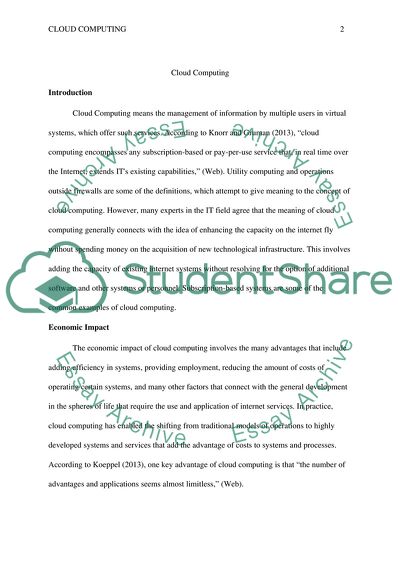Cite this document
(Cloud Computing for Management Information Systems Essay Example | Topics and Well Written Essays - 2250 words - 1, n.d.)
Cloud Computing for Management Information Systems Essay Example | Topics and Well Written Essays - 2250 words - 1. https://studentshare.org/information-technology/1801036-cloud-computing-for-management-information-systems
Cloud Computing for Management Information Systems Essay Example | Topics and Well Written Essays - 2250 words - 1. https://studentshare.org/information-technology/1801036-cloud-computing-for-management-information-systems
(Cloud Computing for Management Information Systems Essay Example | Topics and Well Written Essays - 2250 Words - 1)
Cloud Computing for Management Information Systems Essay Example | Topics and Well Written Essays - 2250 Words - 1. https://studentshare.org/information-technology/1801036-cloud-computing-for-management-information-systems.
Cloud Computing for Management Information Systems Essay Example | Topics and Well Written Essays - 2250 Words - 1. https://studentshare.org/information-technology/1801036-cloud-computing-for-management-information-systems.
“Cloud Computing for Management Information Systems Essay Example | Topics and Well Written Essays - 2250 Words - 1”. https://studentshare.org/information-technology/1801036-cloud-computing-for-management-information-systems.


